AR10A - X-Ray Positioning Manikin for Training Radiographers
Contact us for further information on this product
The X-Ray Positioning Manikin is an invaluable teaching aid for training Radiographers in Schools of Radiography, without bringing discomfort or danger to patients or students. - This simulator is highly regarded by Schools of Radiography throughout the world
- Life-size human figure containing a fully flexible articulated skeleton produced from a specially selected grade of plastic
- No metal parts are used in the articulation of the skeleton
- Easily identifiable anatomical landmarks
- The body covering has the combined properties of being able to simulate surface anatomy whilst remaining totally radiolucent
- Representations of the larynx, heart, lungs and kidneys are constructed from radiolucent material Weight – the Doll is light enough to be carried easily
- Joint flexibility – there is slight hyperflexion of the knees and elbows. The hip rotation is sufficient and generally the joints are realistic
- Flexible and durable articulation of the skeleton ensures a lengthy period of use
Positioning The Doll is best used in the recumbent positions as, although it is possible to use an upright bucky with supports, this makes the use of positioning blocks and immobilisation devices more difficult. The Doll will lie naturally in the neutral position, prone or supine, without support. A wide selection of positioning aids must be at hand, e.g. foam blocks, wedges, sand bags and compression band. These are essential to maintain any position other than neutral as the skin of the Doll has some resistance to overcome. This is, of course, an advantage in the teaching as it prevents the student cutting corners by omitting the use of these positioning aids. The Doll can be positioned for all standard projections with no more difficulty than a difficult patient might present. Computed Tomography The Radiographic Positioning Doll was positioned and imaged for a whole body CT investigation, making normal use of projection radiography for planning purposes. The resulting images were very good in terms of body outline and fundamental structure, but there were fundamental differences regarding the quantitation of tissue (i.e. the expected CT numbers). Certain areas of the skeletal structure, such as thoracic vertebrae and the head of the femur gave similar values to the typical patient. It was not surprising also that the lung fields were reasonably representative, though lacking in any structure. The Doll fulfils its function very well as a training device for positioning for conventional X-ray and CT. This is because the results of positioning can be imaged (albeit using very unrepresentative exposure factors) and hence the positioning can be critically examined. However, the current design is so different from the human body in terms of X-ray attenuation that it is clearly impossible to use it for training or practising exposure control.
|
 Back | Back |  Print This page Print This page
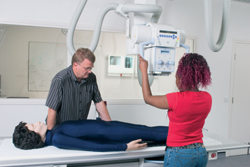
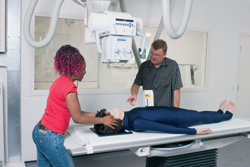
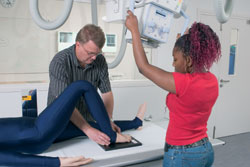
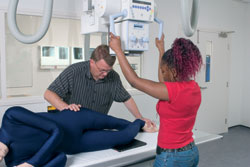
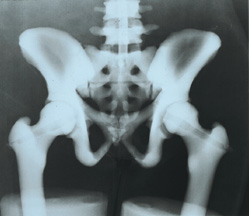
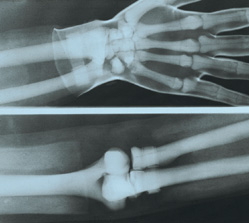
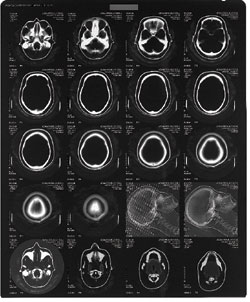
 Back | Back |  Print This page Print This page
|



